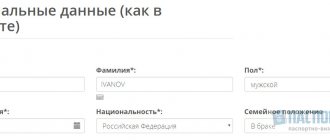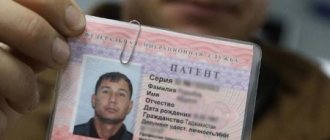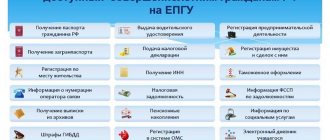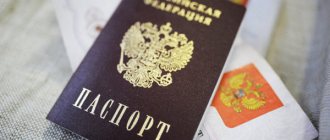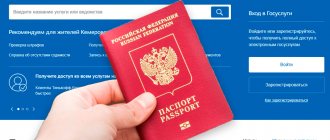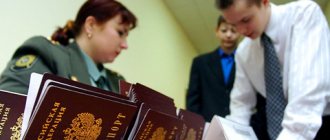Immigration to Estonia has been of interest to residents of Russia for quite a long time, since the mentality of this country is very close to ours. Residents of the Russian Federation are increasingly using this state to move to the European Union and develop business, since it is part of the EU, NATO and is a party to the Schengen Agreement. Since this country borders Russia, it is much easier to realize your intentions from its territory.
View of Tallinn, the capital of Estonia
Advantages of emigrating to Estonia
Estonia is an independent European country with a good economic and geographical position, bordering the Baltic Sea. In 2004, it was admitted to the EU, and to maintain rapid economic growth, the organization periodically provides financial assistance to the state. Estonia has very strict immigration laws, making it difficult to enter the country.
Some benefits for moving to this state are available to people whose relatives lived on its territory and were citizens of Estonia from 1918 to 1940. The maximum number of people allowed to cross the borders of this country is 0.1% of the total population, which is approximately 1,400 people.
In most cases, it is impossible to become a citizen of this state without permanent residence in Estonia. But having at least a residence permit, a person can be equated to a native resident of the country.
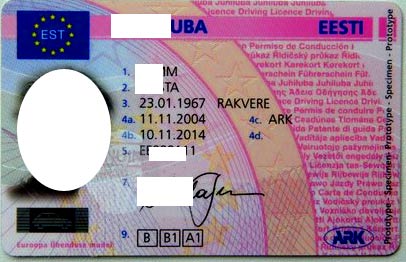
This is what a driver's license looks like in Estonia
The governance system in Estonia is parliamentary. The country has a national language that is completely different from other languages of nearby countries. The main advantages of emigrating to the former republic of the USSR are the presence of a large number of Russian-speaking residents on its territory, proximity to Russia and quick adaptation to the new area.
Having a residence permit in Estonia, you are allowed to move freely throughout the European Union countries that are part of the Schengen zone. Also in this state there is no income tax, but social contributions, fees from individuals and VAT are quite high.
State immigration legislation is fairly neutral regarding residents from Russia, and therefore to enter this country you can use one of several options:
- Enter into an official marriage with a resident of Estonia.
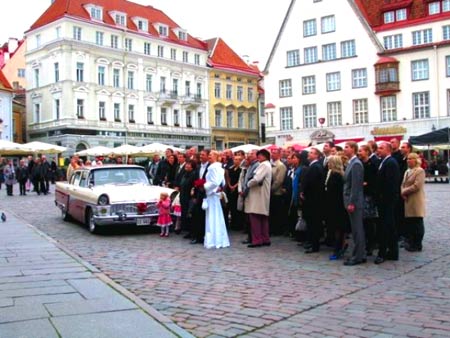
- Get a job in this country.
- Business immigration to Estonia and development of your own company.
- Enter one of the higher educational institutions of this state.
- Purchase real estate.
Permanent residence in Estonia from Russia
Citizens from Russia can obtain the status of “permanent resident of Estonia” if they have lived in Estonia for 5 years under a residence permit. This status gives the immigrant the right to leave the country for a while. However, there are time limits - no more than six months (for one trip). In general, foreigners with a residence permit are allowed to be absent from Estonia for no more than 10 months out of 5 years of residence. Programs
Local legislation establishes a list of grounds giving the right to obtain permanent residence in 2021.
Job
The Estonian authorities allocate a limited number of quotas to attract workers from other countries. An immigrant is allowed to enter the country only if the employer searched for an employee among candidates with citizenship of Estonia and EU countries, and within 3 weeks none of them agreed to take the vacant position.
The local employer must sign an employment contract that contains information about:
- Schedule and working conditions.
- Monthly earnings.
- Rights and responsibilities of both parties.
- The position held and the range of work performed within it.
Thanks to the labor migration program, a foreigner can officially find employment in Estonia and work unhindered for 2 years. It is possible to extend the permit for up to 5 years.
Family reunion
A residence permit can be obtained by the spouse of an Estonian citizen, as well as the children of an Estonian citizen or immigrant who has a residence permit valid for at least 2 years. Persons who require constant supervision have the right to obtain permission early. These include the following categories of citizens:
- Pensioners.
- Grandchildren and citizens for whom guardianship has been issued.
- Children with disabilities who have not reached the age of majority.
Marriage
To eliminate the possibility of a fictitious marriage, the social service conducts regular checks of newlyweds. Conditions that confirm the honesty of your intentions - living together, taking care of each other, a common bank account. If the couple matches them, the immigrant will be allowed to live in Estonia, and after 2 years they will be granted citizenship. An Estonian citizen is obliged to fully support his family until his spouse gets a job.
Education
Estonian state universities issue diplomas that are quoted in any European country. Lawyers for the “Investor Visa” website recommend paying attention to the fact that studying for a bachelor’s degree takes 3 years, and for a master’s degree it takes 5 years. The Doctor of Science degree is awarded to those who have studied for another 4 years.
A residence permit in Estonia is issued for the entire period of study. If a student decides to get a part-time job, he will not need to obtain a permit. Thanks to this relaxation, he can find a place with the prospect of official employment in 2021.
Business
Any investment from abroad is positively accepted by the Estonian government. Compared to other EU countries, Estonia offers more affordable prices for opening LLCs and JSCs. By registering a company, the owner receives permission to stay in the country. The validity period of the document is 2 years, if necessary it can be extended to 5 years. During this period, the immigrant must be actively engaged in entrepreneurial activity.
There are 2 ways to register a business in Estonia:
- Limited Liability Company. The opening condition is the presence of an amount of 2.5 thousand euros in an Estonian bank.
- Joint-Stock Company. To open it, the account must have at least 25 thousand euros.
Origin
If a foreigner provides evidence of Estonian origin, he will be granted citizenship. Blood relationship with an Estonian citizen (mother, father, grandmother, grandfather) is a direct basis for obtaining permanent residence. The processing process can be expedited if the immigrant collects supporting documentation.
Refugees
A person will need to prove that he is being persecuted in his homeland because of his religious, political views or race. A good reason for relocation may be the threat of a man-made or environmental disaster from which the citizen cannot be protected at home.
List of documents
The composition of the set of documents will depend on the chosen program in 2021. The main list includes:
- Receipt for payment of the duty.
- Written justification for the expediency of the immigrant’s presence in Estonia (drawn up by the applicant himself in free form). In it, the Russian must present brief and convincing arguments in favor of issuing permanent residence.
- Documents confirming the stability of the financial situation.
- Autobiographical data.
- Application in the form of a questionnaire.
- Documents proving your place of residence in Estonia.
- Medical insurance policy.
- 2 photos.
- Original passport and copies of pages certified by a notary.
The basic list can be supplemented with other documents if provided for by the conditions of the selected program.
Requirements
Obtaining permanent residence requires not only the collection of a standard set of documentation, but also the implementation of a number of actions:
- Confirmation of having a legal source of income in the country (pension, scholarship, job or business). Earnings for the last 5 years are taken into account.
- Registration of health insurance.
- Passing an exam on knowledge of the Estonian language (results not lower than level B1 are counted).
- Payment of duty.
Submission of documents
The collected package of documents must be submitted to the police office or immigration service in Estonia.
Entering the country to open a business
Emigrating to Estonia from Russia to develop your own business has many advantages.

The most important thing is that this procedure is not very expensive compared to other countries of the European Union. Estonia has relatively low taxes, and its economy welcomes entrepreneurs from other countries. Any investment from abroad is welcome here.
Emigrants are allowed to register a joint-stock company or limited liability company in this country. After this, a residence permit in Estonia is automatically granted for two years, which can subsequently be extended for five years.
In order to extend a residence permit, the company must conduct business activities for 8 months before submitting the application.
In Estonia, emigrants or foreign legal entities are allowed to register two types of companies: a joint stock company and an analogue of an LLC. The first option requires an authorized capital of more than 25,000 euros. To register a limited liability company you will need to pay ten times less.
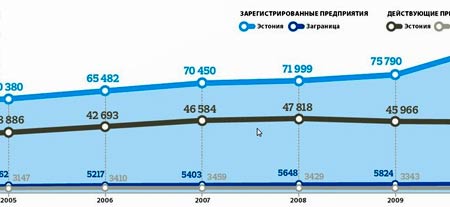
business investment growth chart in Estonia
A mandatory requirement in both options is that the company’s authorized capital must be located in any bank in Estonia. Only after this the owner of the company can freely use his funds.
In addition to the initial investment, when registering a company, you will have to incur some other expenses. You will need to pay various state fees and several mandatory payments. In total, the amount will be approximately 2000 euros.
It is important to know that when involving law firms that specialize in registering companies, the cost of paying for such services can range from 4,000 to 6,000 euros. The cost depends on the type of enterprise and legal status.
But when registering a company through a specialized company, the customer in any case must be present at the registration of the company to sign documents, have them certified by a notary and invest an amount of money in an Estonian bank, which is equal to the authorized capital of the future company.
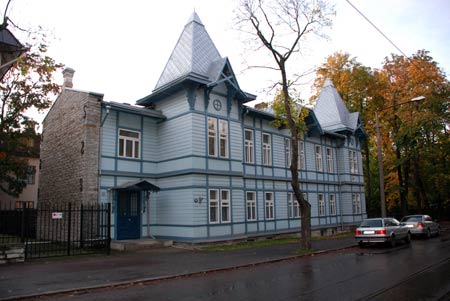
Notary office building in Tallinn
Also, among the advantages and disadvantages of running your own business in Estonia, one can highlight the fairly low cost of this process.
Estonia has a fairly flexible tax policy, since there is no income tax, and 18% VAT is charged only if the company’s annual turnover is more than 16,000 euros.
Also, 35% of the enterprise’s commercial activities will have to be paid to the state budget.
In addition, you do not need to take over the management of the company yourself. It is required to select an executive director and monitor the work of the company remotely, without even being in the country. Having registered your own enterprise, from the beginning of official work you can buy any real estate, transport and land.
Benefits of being a permanent resident of Estonia
Free travel in Europe Permanent residents of Estonia have the right to travel to the countries of the European Union and the Schengen area without issuing a visa.
High-quality medical care If you have European health insurance, a permanent resident of Estonia can receive care in EU clinics.
Purchasing property With an Estonian permanent residence card, it is possible to purchase real estate without paying taxes at the time of purchase or in the form of annual payments.
Business development Moving to Estonia for permanent residence guarantees favorable conditions for creating a new company or acquiring an existing one with the right to enter the EU market.
Access to banking services Having a country's permanent resident card opens up the possibility of obtaining loans and other services from EU banks.
Moving to Estonia for family permanent residence Close relatives of a permanent resident of the state can obtain the right to reside in the country under the reunification program.
Attachments
One of the most popular ways to immigrate to this country from Russia is investing.
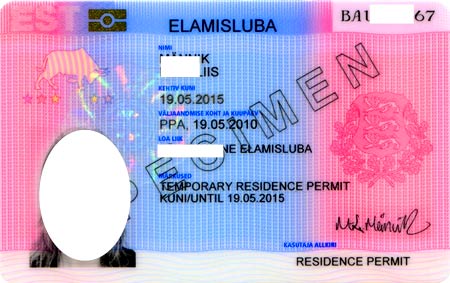
Sample residence permit card in Estonia
A residence permit in Estonia, without the opportunity to work, can be issued if the emigrant’s income allows him to fully support his living expenses.
At the same time, a foreigner needs to buy real estate at his own expense, which will allow him to apply for permanent residence after 5 years.
Algorithm for obtaining a residence permit
The country annually sets a quota for the number of migrants. Within the framework of this limitation, candidates are checked (90 days are allotted for the procedure) and they are interviewed. After this, an official decision is made.
Obtaining a residence permit
A residence permit allows a foreigner to legally live in the country.
The package of documents for obtaining a permit includes:
- a foreign passport that is valid for the next 6 months;
- 2 photographs 35x45 mm;
- application form of the applicant for a residence permit, filled out in 2 copies;
- a document confirming the availability of funds to stay in Estonia for the period of validity of the visa;
- papers on the purchase or rental of housing in the country;
- certificate of no criminal record (for 3 years);
- a document justifying the request for a residence permit (employment contract, etc.).
The papers must be translated into Estonian and certified by a notary.
Moving to permanent residence in Estonia
A foreigner can consider a country as a permanent place of residence after 5 years of continuous stay on the territory of the state. The requirements for applicants for permanent residence in Estonia are more stringent.
They need to prepare:
- application form filled out in Estonian;
- international passport;
- a document confirming the presence of a permanent income (salary certificate, pension, etc.);
- photograph;
- certificate of proficiency in Estonian;
- health insurance;
- receipt for payment of state duty.
Up to 90 days are allotted for consideration of the application.
Features for children
For children traveling to Estonia, parents must present a birth certificate or other document confirming relationship. If a minor moves to live with a relative living in the country, the latter must send an invitation.
When a child travels to Estonia with one of the parents, written permission from the other is required to move abroad.
How to move as a pensioner
A pensioner can obtain an Estonian residence permit by proving a family connection with a resident of the country: an elderly person needs care.
The state will allow him to live with his relatives if the foreigner proves financial solvency (personal or host).
The income for each family member must be at least 150 euros per month. A pensioner also needs to have his own housing, even if he intends to live with his relatives.
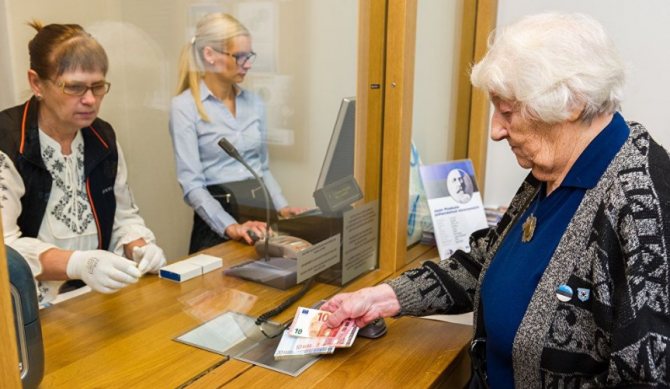
A pensioner must have an income of 150 euros per month.
Job
Moving to Estonia from Russia to get a job is not an easy way to gain a foothold in this country. A residence permit can only be issued if the company initially conducted an interview for the vacancy, and after three weeks no resident of Estonia or a person with a residence permit, a citizen of the European Union, who would meet the stated requirements and qualifications of the company, has applied for it, except foreigner.

At the same time, the number of people wishing to obtain a residence permit in Estonia should not exceed 0.1% of the total population of the state. An emigrant must have education and work experience, as well as good health. Before completing the documents, the emigrant must obtain advance permission from the Unemployment Insurance Fund, which will be valid for 60 days from the date of registration.
Before submitting an application for a residence permit, the emigrant and the owner of the Estonian company must conclude an employment contract for a period of at least one year, or the employer must make an employment offer to the newcomer.
In this case, a legal contract is drawn up that binds the company and the employee for a period of 1 year. In this case, the residence permit is issued for two years with the possibility of extending it for a further five years.
Reasons for immigration
The first thing you need to move to Estonia is a foundation. Today there are several ways of legalization for foreigners:
- Getting married. The path is not the easiest, since for the authorities of the Republic, just having Estonian citizenship for one of the spouses is not enough. They will have to prove that the marriage was not fictitious and collect many certificates confirming the impossibility of living in the country of citizenship of the second spouse.
- Apparatus employed. This path is complicated by the fact that it will be possible to fill only a position for which no applicants were found among citizens or residents of the Republic of Estonia within 21 days after the vacancy was announced. Requirements for a foreign candidate: relevant education and work experience in the specialty, good health, no criminal record, knowledge of Estonian and/or English. If all conditions are met, an employment contract is drawn up for a period of one year, on the basis of which the future employee will be able to obtain a work visa, and then a residence permit.
- Reunion with relatives. The country's migration authorities are also picky about this method. Only those foreigners whose close relatives need care and guardianship (minors or elderly) and who do not have other close relatives among Estonian citizens who are ready to take on this task can apply for permanent residence. The process begins with Estonian citizens submitting an application to the Ministry of Justice. After receiving approval, they will have to send an invitation to a foreign candidate for a residence permit.
- Studying at a university. One of the easiest ways to emigrate with a lot of positive aspects. For example, diplomas from Estonian universities are highly rated in the European Union. A residence permit is issued to a student for the entire period of study. While studying, students are allowed to earn extra money, which means that they can not only improve their financial situation, but also prepare the ground for future employment. After graduation, graduates can immediately apply for permanent residence.
- Investments. One of the most popular ways in which emigration to Estonia from Russia is quite possible. To obtain a residence permit (without the right to work), you need to invest at least 65 thousand euros in the local economy. The investment object does not have to be a state-owned company. It could be a private business. The main thing is that he has worked in Estonia for at least 4 years and brought benefit to the Estonian state. A mandatory requirement is that the investor must stay in the country for at least 183 days during the year.
- Starting a business. Judging by the reviews of those who have already walked this path, Estonia is particularly liberal in tax matters. Profit tax does not exceed 21%, and VAT is 18% and is paid only if the company’s total cash turnover exceeds 16 thousand euros per year. Foreign citizens are given the opportunity to register a joint stock company or limited liability company in the Republic of Estonia; Individual entrepreneurship is not provided for foreigners. To open the first one you will need 25,000 euros, for the second it will be enough to have 2,500 euros in your account. A prerequisite is the presence of the full amount of the authorized capital in a bank account in Estonia. To register a business you will need about 3 thousand euros more. If you use intermediaries, this amount will double.
- Refugee. This path may be the longest. It takes several months to process the request. The applicant will have to document that he is subject to racial, political or other persecution in his home country. Russians are rarely granted this status, since the Russian authorities resolve the issue of refugees independently. If you succeed in obtaining asylum, a residence permit will be issued for 2 years with the right to extend for another 5 years.
Purchasing real estate does not provide grounds for obtaining resident status in the country. In 1998, an amendment to the Citizenship Law was adopted, on the basis of which children born after 26.02.1992 and whose parents have lived in Estonia for at least 5 years can receive citizenship of the republic automatically, based on an application from the father and mother.
Higher education and training in Estonia
Another way for visitors from Russia to obtain a residence permit is to study. Since Estonia is part of the European Union, higher education diplomas from its educational institutions are valued by all European countries.
The Estonian educational system is based on the Bologna process, in which a bachelor's degree is achieved in 3 years, and a master's degree can be obtained in another 2 years. To obtain a doctorate, you need to study for another 4 years.
There are three private and six public higher education institutions in Estonia. The University of Tartu is considered the country's first university. It is the largest classical state university in Estonia. At the moment, Estonian institutions offer about a hundred programs with an English bias. Throughout the entire period of study, emigrants have the opportunity to earn extra money.
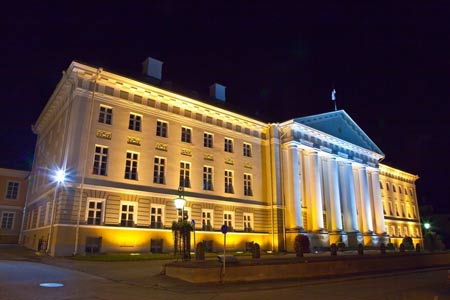
Tartu University building in Estonia
This does not require special permission, as it is part of the educational process.
To obtain an Estonian student visa, you must present the entire package of documents, including an invitation from a higher education institution with confirmation of the student’s enrollment. A residence permit for students is granted for a period of one year until the end of their studies. If the expat continues to study at the same higher education institution, then the residence permit is extended for one year at a time.
Stages of obtaining permanent residence in Estonia
Collection of documents
The application for permanent residence is completed in Estonian. The remaining documents require translation into the state language (with the exception of those drawn up in English and Russian) and notarization. By filling out the application, the applicant for permanent residence confirms the authenticity of the specified data, as well as the presence of a stable official source of income and a health insurance policy.
Registration of documents
It is recommended to submit an application for a long-term residence permit at least 2 months before the expiration of the temporary residence permit. Registration of documents is carried out at the Estonian Police and Border Guard Department or by e-mail. It is also possible to prepare and submit an application through a consulate or embassy.
Providing a permanent residence card
The decision to issue a long-term residence permit is made within 3 months from the date of submission of the application, but no later than 10 days before the expiration of the residence permit card. Once approval is received, the permanent resident card is issued to the applicant in person within 30 days. To extend permanent residence, the same documents must be submitted again, with the exception of proof of knowledge of the Estonian language.
The text was moderated by
Alexander Samoilov, Leading migration specialist in the direction of “Immigration to the EU”
What does Estonian citizenship give?
Citizen status is granted by birth, but immigrants have the opportunity to apply for it. Acquiring status other than by birth is called “naturalization.” To obtain Estonian citizenship, you must move to a permanent place of residence in the country and live in the country for at least 5 years. Before applying, you must pass language and citizenship tests, and then abandon your old passport in favor of obtaining an Estonian one.
Benefits of citizenship in the Republic of Estonia:
- permanent residence and employment opportunities in Estonia and other EU countries;
- simplified entry procedure into more than 100 countries and free travel within the Schengen Union;
- social security provided by the state;
- providing the possibility of using the banking system throughout Europe;
- obtaining a prestigious and high-quality education in the best higher educational institutions in Europe;
- the opportunity to obtain an Estonian passport for close relatives using a simplified system;
- profitable business in the European market;
- consular protection when traveling to other states.
Do you want to get EU citizenship in 12 months? Take the free test and find out your chances.
Advantages and disadvantages of living in Estonia
Obtaining a new status gives the citizen all the rights and responsibilities of the country. There will be no need to prepare additional paperwork for running a business or employment. Features and benefits include:
- No restrictions on time of stay. With a residence permit, the resident must stay on the territory of the state for at least 180 days. Citizenship cancels any restrictions.
- Registration at the place of residence is not required.
- You are given the right to vote and nominate yourself for public office, which is impossible if you have the status of residence permit and permanent residence.
- Social security. You can apply for a pension, scholarships and other benefits.
- Opportunity to work in all positions, namely at customs, in court, etc.
Estonia has fairly strict laws regarding obtaining citizenship. Europe has a negative attitude towards the tough position of the Estonian government towards immigrants from Russia and Ukraine. The nationalization procedure quite often drags on for a long period. Many applicants lose their desire to obtain an Estonian passport. It is necessary to clearly decide and set oneself the goal of obtaining the necessary status in the state. If you have a clear desire to associate yourself with the Republic of Estonia, you should be prepared for a lengthy process of completing all the paperwork and waiting for a response from the government.


